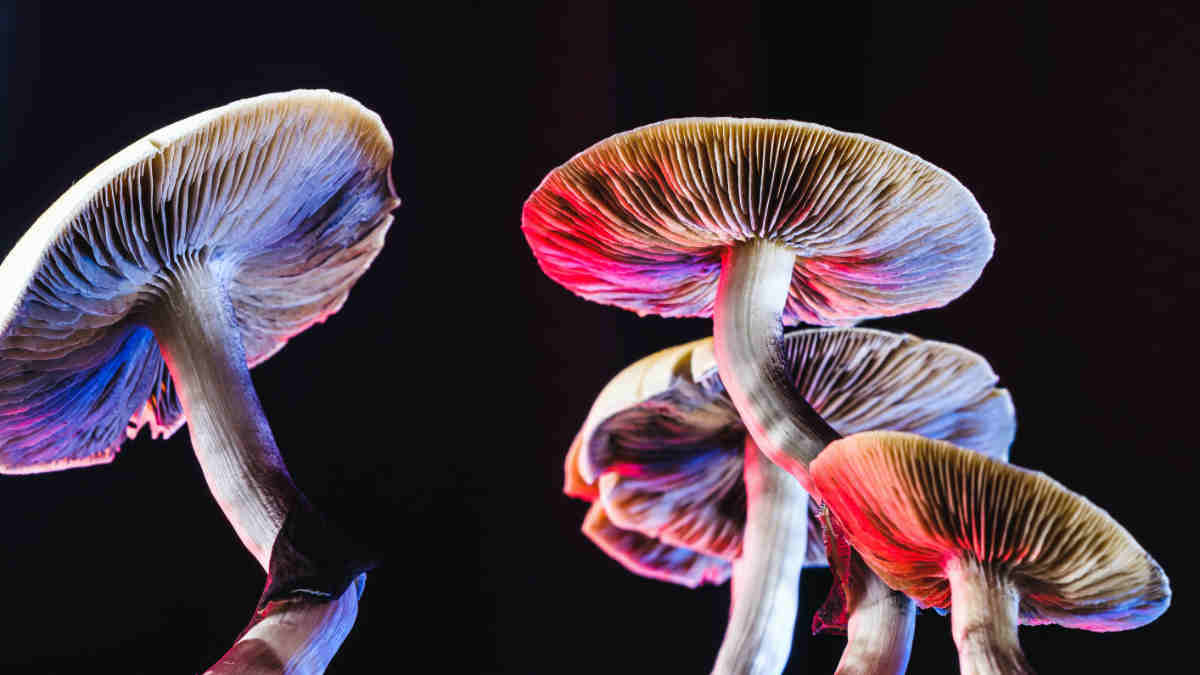Australia just became the first country to recognise psychedelics as medicine. These are the ASX stocks you need to know about

TGA has made new groundbreaking rules on psychedelics. Picture Getty
- The TGA has changed its classification of psilocybin and MDMA
- As a result, Australia has become the first country in the world to recognise psychedelics as medicine
- ASX psychedelic related stocks surged on Monday
Australia has become the first country in the world to recognise psychedelics as medicine, after the Therapeutic Goods Administration (TGA) approved psychedelic substances used in magic mushrooms and MDMA.
From 1 July this year, medicines containing the psychedelic substances psilocybin and MDMA (3,4-methylenedioxy-methamphetamine) can be prescribed by authorised psychiatrists in Australia for treating certain mental health conditions.
Psychedelics-related stocks on the ASX rose this morning after the surprising announcement, with Emyria (ASX:EMD) surging by over 30%.
Under the new guidance, the TGA says it will permit the prescribing of MDMA for the treatment of post-traumatic stress disorder (PTSD), and psilocybin for the treatment-resistant depression.
“These are the only conditions where there is currently sufficient evidence for potential benefits in certain patients,” said the TGA.
Prescribing will be limited to psychiatrists, given their specialised qualifications and expertise to diagnose and treat patients with serious mental health conditions.
To prescribe, psychiatrists will need to be approved under the Authorised Prescriber Scheme by the TGA following approval by a human research ethics committee.
The Authorised Prescriber Scheme allows prescribing permissions to be granted under strict controls that ensure the safety of patients.
The decision by the TGA acknowledges the current lack of options for patients with specific treatment-resistant mental illnesses, and means that psilocybin and MDMA can now be used therapeutically in a controlled medical setting.
For these specific uses, psilocybin and MDMA will be listed as Schedule 8 (Controlled Drugs) medicines in the Poisons Standard.
For all other uses, they will remain in Schedule 9 (Prohibited Substances) which largely restricts their supply to clinical trials.
A timely move
The TGA’s decision comes at a critical time as Australia and the world grapple with an ever-increasing rise in mental illness cases since the pandemic began in 2020.
According to a study by Harvard University, mental health disorders have risen exponentially but the development of new standard medications has not kept pace.
Another study conducted by Yale University on mice determined that one dose of psilocybin will immediately increase neural connections in the brains, helping it to “reorganize and adapt” to different situations.
The US FDA has made an early move, designating MDMA as a ‘breakthrough therapy’ as early as 2017, but has so far not legalised its use beyond scientific purposes.
Meanwhile, psychedelics’ move into Schedule 8 (controlled drugs) in Australia has now put the drugs on par with medicinal cannabis, which has already been designated Schedule 8 in the country since 2016.
Emyria’s MDMA program
A handful of ASX companies are set to to benefit from the TGA’s latest announcement.
Emyria will be one of them.
The company has secured the rights to a University of Western Australia (UWA)’s library of more than 100 novel MDMA analogues, and have together launched an MDMA-inspired drug discovery program.
The partnership has now developed, screened and filed IP for over 140 proprietary, neurologically active and novel MDMA-like compounds.
They could potentially become registered treatments for a range of neuropsychiatric disorders and new psychedelic treatments.
Emyria also has preclinical studies underway to identify candidates for next-generation MDMA-assisted therapy and treatments for other major neurological conditions, creating a robust pipeline.
Michael Winlo, Emyria’s CEO, told Stockhead there are commercial opportunities in helping other clinics provide these treatments safely to patients together with psychotherapy.
“Realistically, there are very few clinical operators familiar with the Authorised Prescriber requirements, and the ongoing risk management and reporting obligations,” Winlo said.
“The clinical trials we’ve been planning in this space can directly support private psychiatric practices with their Authorised Prescriber applications and ongoing obligations.
“This allows us to support a network of partners providing ‘evidence-generating care’ versus remaining constrained to a small study.”
Currently, the TGA has said use of these treatments are constrained to one indication each – MDMA for PTSD and psilocybin for major depression.
“But with the increase in direct patient care and research, both activities Emyria is ready to support, the field of indications will broaden,” Winlo said.
Winlo also believes the rescheduling decision opens up new registration and reimbursement pathways for these treatments and, eventually, their analogues – which, by association, will likely become rescheduled too.
“So, we are optimistic about the value we can create with novel drugs, inspired by MDMA but designed to address new neuropsychiatric disorders.”
Emyria share price today:
Other ASX companies in the psychedelic space
Creso is one of the leading players in the psychedelic space through its Canadian subsidiary, Halucenex.
Halucenex is currently preparing a Phase 2 trial to study the efficacy of psilocybin when used for the treatment of treatment-resistant PTSD.
This follows the approval of a Controlled Drugs and Substances Dealer’s Licence granted by Health Canada back in August.
Securing the licence has made Halucenex one of only a few companies globally with the Dealer’s Licence, allowing it to work with psilocybin and other psychedelics under Health Canada’s directive.
Incannex’s Phase 2 clinical trial is assessing its psilocybin-assisted psychotherapy for treatment of generalised anxiety disorder (GAD).
The phase 2 PsiGAD1 clinical trial has achieved its interim milestone of 29 patients completing primary endpoint assessments with interim analysis now underway.
PsiGAD1 was developed in collaboration with head of the clinical Psychedelic Lab at Monash University and member of IHL’s scientific advisory board Dr Paul Liknaitzky.
The study is being conducted at Monash University’s BrainPark under the leadership of Liknaitzky.
IHL said treatment of GAD with currently accepted medications and therapies remains inadequate, with less than half of patients achieving remission.
Little Green Pharma (ASX: LGP)
LGP received an approval from the WA Department of Health to produce the psychedelic drug being trialled in the treatment of mental illnesses such as PTSD and anxiety.
LGP has now established a special purpose subsidiary to conduct its psychedelic business, and will start manufacting psilocybin from its WA production facility.
The company is also currently engaged in extending its GMP licence to cover the psilocybin manufacture.
Share prices today:
Related Topics
UNLOCK INSIGHTS
Discover the untold stories of emerging ASX stocks.
Daily news and expert analysis, it's free to subscribe.
By proceeding, you confirm you understand that we handle personal information in accordance with our Privacy Policy.








